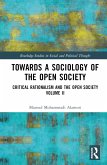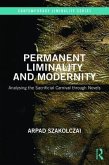Inspired by interactionist theory and Goffman's dramaturgy, this book traces the terminal or online self, generated by our modern practice of interacting with others on terminals, both on- and offline. It explores the deterioration of our sensory engagement in face-to-face interactions; the 'hyper-narcissism' that comes to characterise the project of the self in contemporary society; the short, decontextualized, often faceless and instrumental nature of our terminal interactions with others; the drive for immediate gratification, voyeurism and exhibitionism that shapes hypermodern lives; and the sense of panic and urgency that prevails in our responses to an incessant flow of communication.








